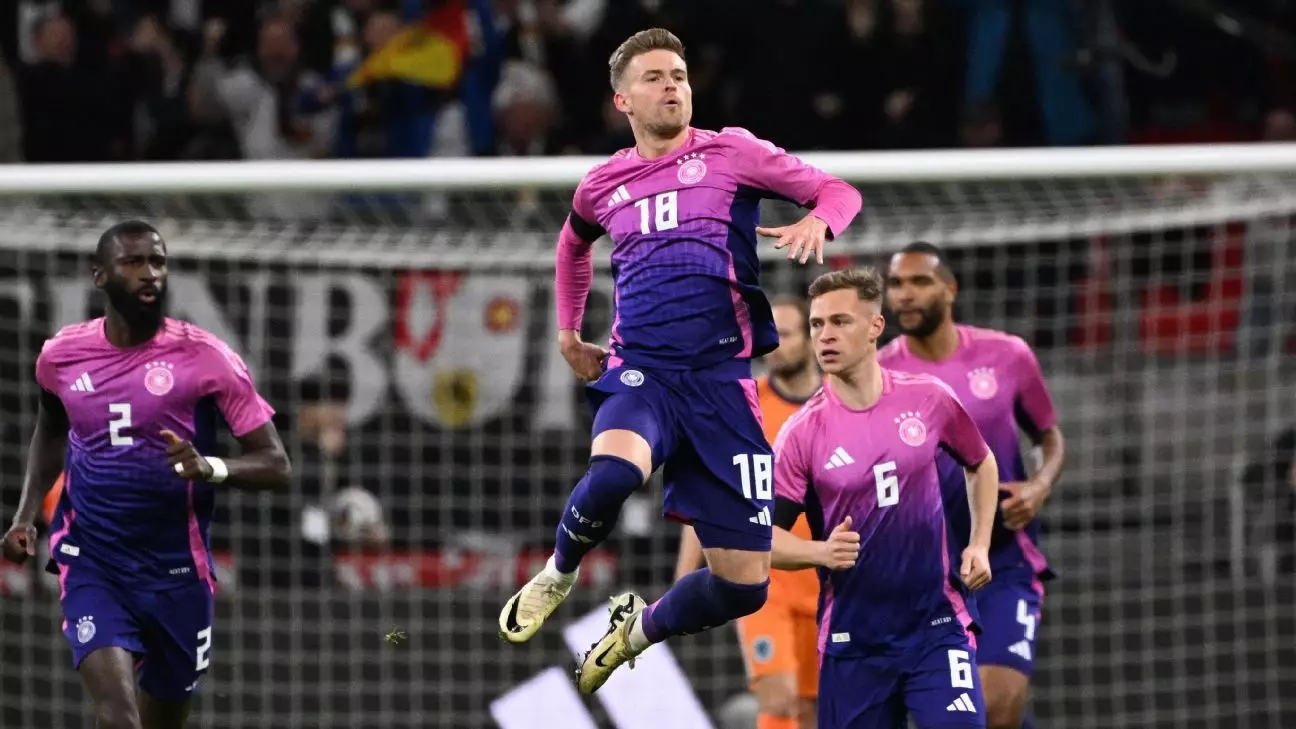Germany’s national team finds itself in an interesting position, less than three months away from the 2024 European Championship. Despite being on the cusp of their first major event on home soil since the 2006 World Cup, there seems to be a sense of nonchalance among fans, players, and coach Julian Nagelsmann. The recent friendly win against Netherlands was met with lukewarm reactions, as fans seemed more focused on the corporate atmosphere and pass-the-beer mentality rather than the actual game unfolding before them.
Coach Julian Nagelsmann’s approach heading into the international break seemed to veer towards simplicity and familiarity rather than innovation and risk-taking. Unlike previous outings that saw experimental tactics and unconventional player placements, Nagelsmann opted for a straightforward 4-2-3-1 system that mirrored his players’ roles at their respective clubs. This shift towards a more traditional setup could be seen as a response to the realization that meaningful change within a national team framework is difficult to achieve, given the limited time available for training and tactical adjustments.
Nagelsmann’s decision to include seasoned veterans like Toni Kroos and Ilkay Gündogan, alongside lesser-known players like Robert Andrich and Maxi Mittelstadt, speaks to his willingness to look beyond star power and delve into the depths of the squad. This pragmatic approach, coupled with a focus on playing to the strengths of individual players, emphasizes the importance of adaptability and flexibility in international football. Nagelsmann’s critics may accuse him of entitlement and arrogance, but his willingness to explore different options and trust the capabilities of lesser-known players showcases a more nuanced understanding of team dynamics.
Germany’s squad composition presents a unique blend of young talent, seasoned veterans, and underrated players, creating a delicate balance between potential and experience. The inclusion of young talents like Florian Wirtz and Jamal Musiala, alongside established names like Manuel Neuer and Toni Kroos, highlights the team’s readiness to embrace a blend of different skill sets and attributes. While the team may lack a standout superstar, their collective approach and willingness to work together towards a common goal bode well for their upcoming Euro campaign.
As Germany prepares to embark on their Euro 2024 journey, the key takeaway from their recent performances and squad selection is the importance of pragmatism and adaptability. Coach Julian Nagelsmann’s insistence on simplicity, coupled with a mix of experience and youth in the squad, sets the stage for a potentially successful campaign. While the team may not exude the same level of excitement or flair as some of their predecessors, their focus on playing to their strengths and leveraging the depth of their squad may prove to be the key to a successful run in the tournament. As they embrace the challenges ahead with a pragmatic mindset, Germany’s national team finds themselves well-positioned to make a splash on the European stage once again.

Leave a Reply